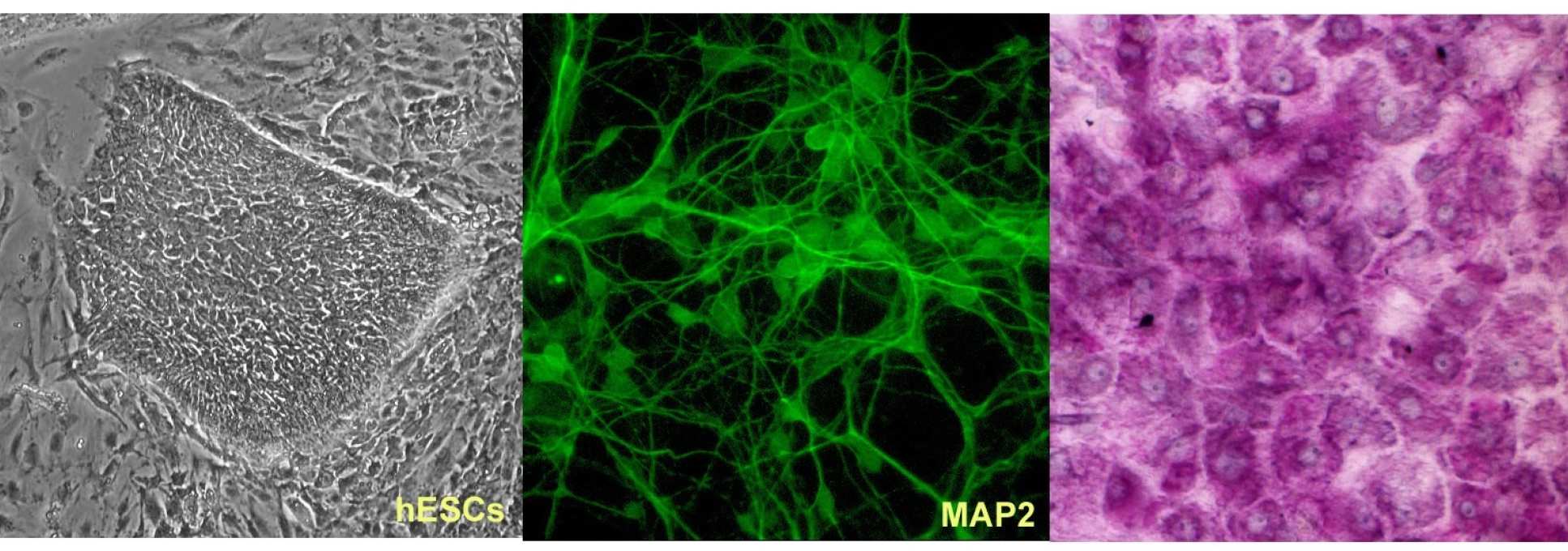Stem Cells

Contact
For more information on this area of research
Dr Veronique Azuara
+44 (0)20 7594 1915
v.azuara@imperial.ac.uk
What we do
We study the biology of human and mouse pluripotent stem cells. These are cell lines derived from early embryos that can be propagated and manipulated in vitro while retaining their full potential to generate all somatic cell types. Our basic research programmes include the elucidation of genetic and epigenetic mechanisms as well as metabolic and signalling pathways that govern stem cell self-renewal and cell fate determination.
In addition to working closely with researchers within the Institute of Reproductive and Developmental Biology, we have active collaborations with other researchers and clinicians of the Stem Cell Regenerative Network, the MRC London Institute of Medical Sciences within Imperial College and other universities nationally and internationally.
Why it is important
Research with pluripotent stem cells allow us to study the earliest possible stages of human development and associated pregnancy problems. Our strategy is to exploit these prototypic stem cell cultures for the identification and characterisation of key regulatory principles and factors that underpin stem cell properties and normal development and thus provide a reliable foundation for innovative clinical applications in regenerative and reproductive medicine.
Impact
Coordination of stem cell potency and differentiation is essential for viable embryonic development and adult tissue homeostatic control across the lifespan into old age. Dysfunction of these vital processes is associated with many clinical disorders including developmental defects, degenerative diseases and cancer. Our joint research efforts led to the discovery of genetic and epigenetic mechanisms that control pluripotency and thus fundamentally distinguish stem cells from cells with more restricted fates as well as identifying key developmental transitions and regulatory pathways that underlie specific lineage choices.
Summary of current research
- Epigenetics and Development, led by Dr. Véronique Azuara
- Stem cell Differentiation, led by Dr. Wei Cui
- The role of miRNAs in stem cell differentiation, led by Dr. Nick Dibb
Our researchers
Dr Veronique Azuara
/prod01/channel_2/media/migration/faculty-of-medicine/Veronique-Azuara--tojpeg_1563449325072_x4.jpg)
Dr Veronique Azuara
Reader in Stem Cell Biology
Dr Wei Cui
/prod01/channel_2/media/migration/faculty-of-medicine/Wei-Cui--tojpeg_1563449348855_x4.jpg)
Dr Wei Cui
Senior Lecturer
Dr Nick Dibb
/prod01/channel_2/media/migration/faculty-of-medicine/Nick-Dibb--tojpeg_1563449390462_x4.jpg)
Dr Nick Dibb
Reader in Cell Signalling


